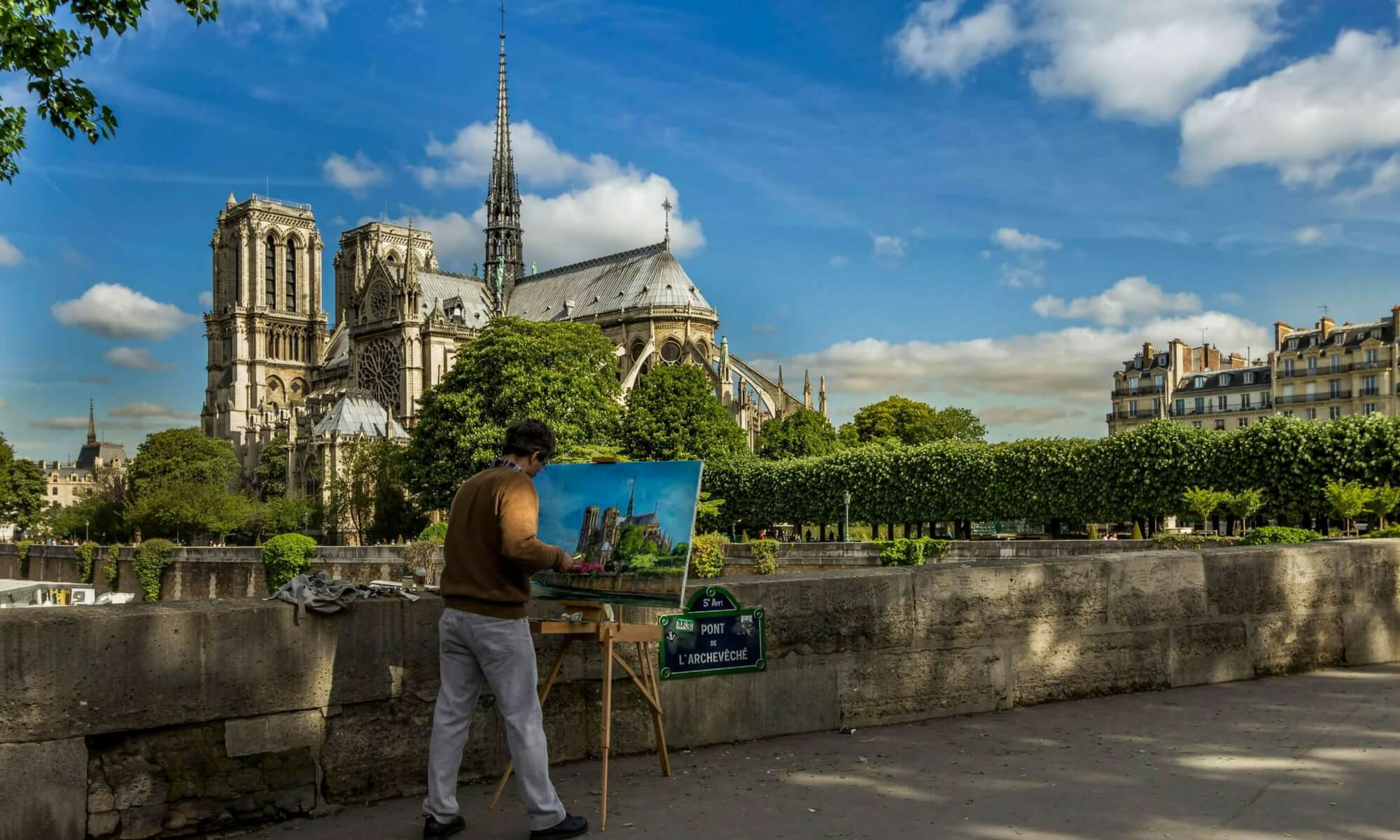Categories: Active Vacations in France, France How To, Off the Beaten Track in France
Here are some of my thoughts on things we could discuss for your podcast. They are things I think people will want — and need — to know before they hike the Chemin. I’m a researcher by nature (and formerly by profession), and Michael (Groves) gave me some tips too. So I was pretty well prepared went I went.
The only thing I wish I’d known but didn’t (had to learn by experience) was that a poncho wasn’t necessary to have. I saw a few people use them when it rained, but with today’s “technical” rain jackets and backpack covers you don’t really need one, and if it was windy as well as rainy they were even more unwieldy.
Pack light! A 38 liter pack is plenty. You really only need one change of clothes, toiletries, a sleep sack and a few sundries.
A small packable daypack is really useful to have for rest days of sightseeing, or buying groceries. Sea-to-Summit’s daypack is excellent. Packs down to the size of a lemon and weighs almost nothing.
Transport services are available if you want a break from carrying a pack. They’ll pick up your pack and deliver to a hotel or gite. Costs about $12/day.
Do train physically, unless you’re already in super shape. There are good online resources about how to train for backpacking (i.e. REI.com)
Use hiking poles. They take a lot of pressure off your knees and enable you to hike farther, faster, and more comfortably.
The “bible” of the Chemin is “Miam Miam Dodo”. There are other resources, but this one is quite thorough and you don’t need to know French to use it. There’s an accompanying smart phone app that’s very useful in situations where you’re not sure if you’re on the right path. The app shows your location in relation to the designated route. Both are highly recommended.
The maps in Miam Miam Dodo aren’t the greatest, however. So I also bought a small Michelin guide with maps of the Chemin, including elevations (so you can see the ups and downs of the route).
It’s definitely a plus if you can speak some French, though not absolutely necessary. You’ll probably need to make reservations by phone, and while many hosts speak some English you’ll have more choices and get better info if you can speak French. Also, the majority of Chemin hikers are French and convivial evenings around a shared table, swapping stories and tips, are a wonderful social experience. If you don’t speak French you can feel a bit left out (according to several non-French travellers I met and spoke with).
Bring earplugs! People snore. Even if you’re in a private room the sound can carry, especially in old, uninsulated buildings.
Carry extra snacks and enough food for an extra lunch. Many small villages and towns are ‘food deserts’ as far as hikers are concerned, with the nearest grocery store perhaps a 1-3km away, and no other services. And timing can be problematic, i.e. you pass through the town at lunchtime when everything is closed, or you arrive on a weekend or a ‘jour de conge’.
| Day | Town/Village | Name of Accommodation | Comments | Restaurants/Notable food/Attractions |
| 0 | Cahors | Le Papillon Vert | Welcoming, laid back gite in a restored medieval building in the centre ville | Lots of good places to eat in town. |
| 1 | Les Mathieux | Gite Domaine des Mathieux | Delicious home cooked traditional meals (at least when I was there). Comfortable dorm room. | |
| 2 | Lascabanes | Chambre d’hotes a la Ferme de Labouysse | Stay with a retired farm couple (and other guests) in their large home. Delicious home cooked food, family atmosphere. | |
| 3 | Lauzerte | Gite communal de Lauzerte | City-owned gite managed by Corinne, who lives off-site. Fine stay, though a bit less warm than some, literally and figuratively (snafu with the central heating when I was there in mid-April). Tasty home-cooked meal. | Not many services in the village outside of the main tourist season. Buy supplies at the Intermarche heading into town. |
| 4 | Durfort-Lacapelette | Gite a la ferme de la Bayssade | Stay with a retired farm couple. Delicious, traditional home-cooked meals feature locally sourced meats and veg. | |
| 5 | Moissac | Gite d’etape La Coquille | Medieval building recently renovated to be modern and comfortable. Former guide Florian is a charming host, though not a great cook. | Had a delightful, delicious lunch at Le Fromage Rit restaurant in the centre ville. Worth the splurge. |
| 6,7 | Espalais | Gite le Par’Chemin | Bought in 2019 by charming French couple inspired by their own Camino experience. Cool 18th C building. Delicious home-cooked meals, served family style. Accommodating of vegetarians. Very convivial! | Possible to walk into Auvillar to eat at restaurants. They were closed for a holiday during my stay. |
| 8 | Miradoux | Gite d’etape Bonte Divine! | Owned by a nice French guy who renovated the space himself (bathroom is gorgeous!). Meal was serviceable. Bunk beds. Friendly atmosphere, outdoor patio. | |
| 9 | Lectoure | Gite l’Etoile Occitane | “Shabby chic” vibe. Comfortable. Bunk beds. Felt rather like a youth hostel, somewhat impersonal. | Weary pilgrims can treat themselves to an afternoon at the local spa. The indoor pool and saunas are open to the public in the afternoon, for 12 euros. You can buy a bathing suit for another 12 euros. |
Subscribe to the Podcast
Apple YouTube Spotify RSSSupport the Show
Tip Your Guides Extras Patreon Audio ToursRead more about this guest-notes
Episode PageCategories: Active Vacations in France, France How To, Off the Beaten Track in France

